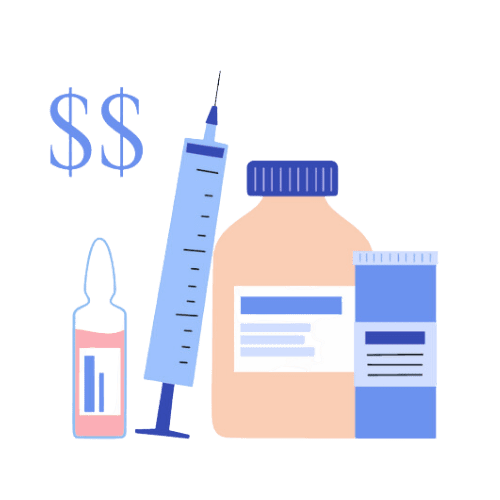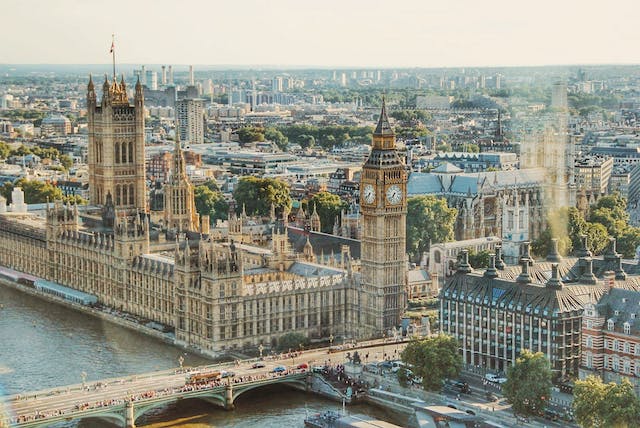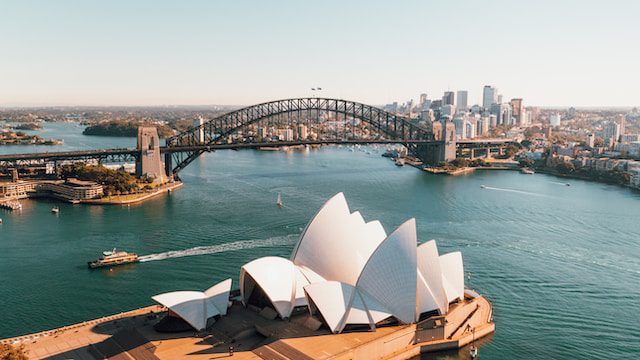Egg Freezing & IVF in New Zealand
At Zora Health, you are our top priority. We’re here to guide you through every step of your egg freezing or IVF journey — helping you understand your options, and make confident, informed decisions about your care and costs.
Egg freezing, also known as mature oocyte cryopreservation, is a method used to save women’s ability to get pregnant in the future.
In vitro fertilisation (IVF) is a procedure used to help with fertility, prevent genetic problems and assist with the conception of a child

Spread out the cost of treatment over 12, 24, and 36 months to avoid large upfront payments and reduce financial burden.
LEARN MORE
Accessible & affordable fertility care in
New Zealand
Egg Freezing and IVF in New Zealand
New Zealand is a country worth looking up to when it comes to a high standard of living and a clean environment. Mostly pollution-free, green living is at its best here with its commitment to reducing carbon footprints, harnessing and using renewable resources for energy, and decreasing emissions from vehicles.
In vitro fertilisation (IVF) is available to single people and heterosexual and queer couples in New Zealand. Egg freezing is also gaining popularity. Tailored treatment options in clinics include gynaecology services, IVF, egg, sperm, and embryo freezing, genetic screening, and donors. Some clinics also accommodate cancer patients who are yet to undergo oncology treatment.
What Medical Travelers Should Know About New Zealand
Medical tourism is still in its infancy in the country. Having said that, it is gaining momentum with its highly personalised patient care and private hospital rooms that look like they're staying in fancy hotels. Patients can save up to 60% in medical treatment costs. Online consultations are also frequently part of the medical packages. Many doctors have trained in Australia, the U.S., and the U.K. Private hospitals have the luxury of primarily dealing with arranged treatments because public hospitals treat chronic and acute or traumatic conditions.
The high standard of living and clean environment are just some of the charms of New Zealand. Nature is at its peak in the fjords, volcanoes, rainforests, and coastal areas. Wildlife in the 14 national parks consists of a healthy, diverse ecosystem. If you're trying to escape the pollution you get from urban living, you would be happy to know that New Zealand is a country that is mostly free from pollution! Its commitment to green living is seen through its carbon neutrality, using renewable energy sources, and reducing transport emissions.
Aside from ranking as the fourth country in the world in terms of safety, its Kiwi population is friendly and hospitable. To make your stay more enjoyable, remember the following dos and don'ts: Give respect to the culture of the Māori people and support their local economy by buying their domestic products. Keep safe by avoiding late-night walking, especially in poorly lit areas. Don't leave valuables when you rent a car, camper van, or motor home to explore nature attractions. Park your motor home in designated parking areas. Keep an eye on your luggage and bags when in railway stations, airports, and ferry terminals.
Take the InterCity national bus network for public transportation. You can also take guided coach tours. There are three trains to choose from: the Northern Explorer, Coastal Pacific, and TranzAlpine trains. You can also take your rented vehicle to cross from North to South islands using the Interislander and Bluebridge ferries.
How Kiwis and the Māori people approach fertility treatment
The Māori indigenous people approach fertility treatment variedly. According to a study, some people prefer to have children naturally while others embrace fertility technology wholeheartedly. Many who suffer from infertility only turn to assisted reproductive technology (ART) as a last resort. The biggest thing they consider is whether ART children would get their whakapapa, which is their lineage tied to economic resources.
Another study pointed to Kiwi women frequently experiencing social stigma and isolation after having infertility treatment so they face choosing between telling the public or not about it. They also expressed anxiety over their careers while on treatment, disruptions of trying to get pregnant to their daily routines, and the hassle of having to schedule appointments outside their working hours.
English is the official and most widely used language. The other official languages are Te reo Māori and New Zealand sign language. Other popular languages are Samoan, Mandarin, Hindi, and French.
Benefits of Doing Fertility Treatments in New Zealand
The population is tiny at around four million. For this reason, the government has easily made high-quality self-funded or publicly funded fertility treatment readily available in the country. Advanced fertility clinic technology such as pre-implantation genetic diagnosis, time-lapse morphery imaging, genetic carrier screening, endometrial receptivity assay, non-invasive prenatal testing, chorionic villus sampling or amniocentesis, and human chorionic gonadotrophin (hCG) infusion before transferring an embryo, are available in many clinics.
Patients who meet certain criteria (a full list of criteria is available here) are eligible for publicly funded fertility treatment. Single and lesbian women may be qualified for referral if they are medically infertile. Transgender individuals unable to achieve pregnancy with a partner may also qualify. To be eligible for publicly funded treatment, patients must be New Zealand citizens or residents or possess a work permit for at least 2 years and live in New Zealand at the start of treatment. Funding is also available for donor sperm/egg treatment and surrogacy.
Publicly funded fertility treatment covers one cycle of either ICSI, donor egg or surrogacy, usage of treatment-derived frozen embryos, four intrauterine insemination (IUI) cycles using sperm from a partner or donor, drug-induced ovulation induction, fallopian tube or testes microsurgery, and thawing cycles of frozen embryos.
Private Fertility Clinics in New Zealand
ReproMed
Consultations for fertility treatment at ReproMed are available in Tauranga and Whangarei. The fertility clinic, located on Remuera Road in Auckland, has a Certificate in Reproductive Endocrinology and Infertility (CREI) and is certified as inclusive and LGBTQ+-friendly by Rainbow Tick. Tailored treatments by this fertility specialist clinic include gynaecology services, IVF, egg, sperm, and embryo freezing, genetic screening, and donors. IVF costs NZD 11,500 – 17,000 (USD 6,850 – 10,125) per treatment cycle. Publicly funded services for New Zealand citizens or residents in the Northern Region are available. The eligibility criteria also include cancer patients who are yet to undergo oncology treatment.
Fertility Plus
Fertility Plus is a fertility specialist clinic that is a part of Te Toka Tumai Auckland Hospital. Certified as inclusive and LGBTQ+-friendly by Rainbow Tick, publicly funded and private treatments are available in the fertility clinic. Its private appointment services include infertility testing, IVF, preimplantation genetic testing (PGT), egg and sperm donors, surrogacy, and fertility preservation treatments such as egg, sperm, and embryo freezing.
Fertility Associates
The clinics of Fertility Associates are in Auckland, Hamilton, Wellington, Christchurch, and Dunedin. Staffed with leading fertility specialists and CREI-certified doctors, the clinic is accredited by the Royal Australian and New Zealand College of Obstetricians and Gynaecologists (RANZCOG) to train fertility doctors towards CREI accreditation. Its services include IVF treatment, PGT, time-lapse imaging of embryos, egg and sperm donors, surrogacy, egg collection, and freezing. Its high success rates are based on two criteria: live birth rates per IVF cycle of collecting a single egg and live birth rates for embryos that are fresh or thawed.
Cost Considerations
IVF
IVF in New Zealand costs NZD 8,000 – 15,000 (approx. USD 4730 – 8880) per IVF cycle depending on individual circumstances and clinic.
Pre-implantation genetic screening (PGS) is available for NZD 1,250 (USD 740) per embryo for the first two embryos and then NZD 1,000 (USD 590) per embryo.
In New Zealand, the costs involved in egg freezing are NZD 1,000 (USD 590) for the first cycle (and cheaper for subsequent cycles), NZD 5,000 (USD 2,960) for future egg thawing and embryo transfer, plus NZD 260 (USD 150) per year for storage.
The cost of publicly funded treatment for egg freezing is covered for medical reasons.
Other Considerations Before Starting Your Fertility Treatment in New Zealand
IVF
In New Zealand, IVF is available to single people and heterosexual and queer couples.
Egg Freezing
Egg freezing is legal and is becoming increasingly popular in New Zealand.
Donors
Non-commercial egg and sperm donors are permitted.Sperm donors must undergo blood tests, semen analysis for high- or poor-quality sperm, a medical appointment, and counselling.Legally, no more than 10 families can receive sperm from the same donor. Clinics limit this to 4 – 5 families.
Surrogacy
Under the HART Act (2005), commercial (paid) surrogacy is illegal (excepting reasonable expenses) and it is illegal to advertise concerning surrogacy.Under the SOC Act, the surrogate and their partner are the legal parents. The intended parents must adopt the child to be recognised as the child’s legal parent.The Parliamentary Health Committee is currently reviewing new laws which would establish a surrogacy birth register.Why Choose New Zealand for Your Fertility Treatment
Although still in its infancy, medical tourism in New Zealand is gaining momentum with its highly personalised patient care and private hospital rooms that look like patients are staying in fancy hotels. Medical travellers can also expect to save up to 60% in treatment costs. Because of its society's fertility problems and its small population, the government has easily made high-quality self-funded or publicly funded treatment for fertility readily available in the country.
Advanced fertility technology such as pre-implantation genetic diagnosis, time-lapse morphery imaging, genetic carrier screening, endometrial receptivity assay, non-invasive prenatal testing, chorionic villus sampling or amniocentesis, and human chorionic gonadotrophin (hCG) infusion before embryo transfer, are available in many fertility treatment clinics. After your treatments, check out any of the 14 national parks for a first-hand experience of diverse ecosystems in fjords, volcanoes, rainforests, and coastal areas.
Ready to do your egg freezing & IVF journey in
New Zealand?
Meet Our Network of
Experienced Fertility Specialists

You deserve the very best.
That's why we’re here to support you — whenever you need it.
1
Personalised Care Navigation
Expert guidance to choose the right care provider and navigate the process, costs, & regulations.
2
Seamless, All-in-One Care
Consultations, diagnostics, telehealth, education, & treatment referrals are available on one platform.
3
Trusted, Reliable Resources
Gain clarity & confidence with verified information. Save time, reduce stress, & eliminate endless research.
Global reach, unparalleled service

"Clear pricing - clarity & support from start to end."
"I love Zora Health for their simple, transparent pricing. It was a relief not to worry about unexpected fees or hidden costs. They made the entire process stress-free and easy to understand, which allowed my husband and I to focus on what mattered most - my family's future."
Syarifah, 27 & Indra, 29

"I couldn't believe that I can choose my own doctor and enjoy extra benefits for the same price."
"I had a preferred doctor overseas that my girl friends recommended. He is part of Zora’s clinic network, but I was interested in Zora’s support and perks. After speaking to Zora, they assured me I wouldn’t pay extra. Zora managed the whole process - from personalised guidance to answering my queries about legalities."
Nina, 32, Single

"The financing options lifted a huge weight off my shoulders."
"Zora’s instalment plans were a true lifesaver. I was so grateful for their flexible and affordable options. I have been thinking about preserving my eggs as a form of “insurance” but didn’t want to pay a big lump sum upfront as I am saving for a house. The instalment plan helps me manage my finances better.”
Elaine, 32

"I never felt alone in my fertility journey."
"After failing previously, we were very anxious and were not sure what to expect. They guided us through the process and cared for us every step of the way. My treatment at the clinic was long, and sometimes it was emotionally draining, but having a fertility coach made us feel better and more prepared. As busy professionals, we appreciate the convenience of scheduling appointments through Zora. I have recommended Zora to all our friends."










